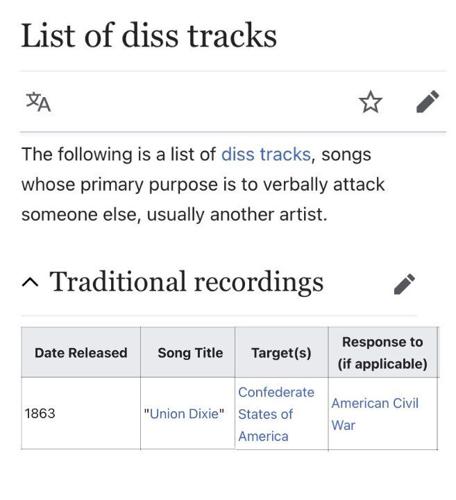
Annie Rauwerda loves Wikipedia.
She loves that Wikipedia is, as she calls it, “the most accessible collection of information that humanity has ever had.” She loves its passionate community of volunteer editors, who incorporate new discoveries and information to that collection in real time. (An anonymous editor started updating the verb tenses on Queen Elizabeth II’s page from “is” to “was” barely a minute after Buckingham Palace announced her death in 2022.)
Rauwerda also loves the site’s endless collection of weird, silly and unfailingly formal articles about everything from “Death by vending machine” to “List of nicknames used by George W. Bush.” For almost three years, she’s been compiling her favorites on Depths of Wikipedia, social media accounts with millions of combined followers.
“To me, there’s so much humor in mixing a lowbrow idea with highbrow language, and then the opposite,” Rauwerda says. “Once you see the Wikipedia font and layout, you immediately have these expectations of some scholarly sentence. When those are defied, it’s pretty funny.”
Rauwerda is speaking to the Scene ahead of her March 5 visit to Zanies, where she’ll put on an 80-minute performance that’s set to be part comedy show, part love letter to the site.
“When you have a single operator who’s clearly doing this out of passion, I think that voice comes through,” Rauwerda says. “I hope that people can tell with my account that I’m doing this just because I’m obsessed about it.”
Depths of Wikipedia posts show the site’s ubiquitous, buttoned-up decorum being used to explore seemingly nonacademic topics. The “List of diss tracks” page includes “Yankee Doodle,” the ferocious lyrical takedown of George Washington and the Continental Army. There’s an article on “Long Boi,” a “renowned, exceptionally tall male duck,” complete with a photo. And there’s a well-sourced page on the Philippines’ “ ‘My Way’ killings,” fatal disputes that occasionally arise after singers in karaoke bars sing the Frank Sinatra hit off-key.
The bite-size posts are perfect for social media feeds, something Rauwerda says helped her original Instagram page grow from a pandemic hobby to a popular page with more than a million followers. (She has since started Twitter and TikTok accounts with smaller but still-sizable followings.) She finds a lot of her content by just browsing the site and through user submissions, and while she often finds herself posting about her own personal interests — math, science and technology — she doesn’t have specific guidelines on what will “work” on her page.
One thing that helps a post pop: Judicious cropping. In the same way a stand-up comic trims their set for the punchiest punchlines, Rauwerda posts Wiki screenshots with just enough context to be both intriguing and hilarious. Really, how much more do you need to read after seeing the line “All tracks are written by Linkin Park. Track 11 written by Linkin Park and Martin Luther King Jr.”?

“Every word that’s not adding something is definitely taking something away, because people aren’t sitting there to read,” says Rauwerda. “They’re scrolling on their phones. So I try to make sure that most of the words there are serving a purpose and being funny.”
Rauwerda, unsurprisingly, has always loved trivia and once auditioned for Jeopardy! In high school, she spent many of her lunch breaks Wikiracing, which involves navigating from one Wikipedia page to another using only the page’s internal links. You could, for example, start at the page for “Nashville Scene,” then click links to “Nashville, Tennessee,” “Vanderbilt University” and “Public research university” before arriving at the page for “University of Michigan,” Rauwerda’s recent alma mater.
Trawling the site gave her a deep appreciation of Wikipedia and especially its editing community. While high school teachers often decry the site’s open editing policy and say it allows inaccurate information to appear on and disseminate via its pages, Rauwerda points out that the site has a rigorous manual of style and standards for citations and edits. She’s written for publications including Slate about how valuable the site is in places like Russia, where access to reliable information is often suppressed.
“The editing community is really inspiring to me, because it’s all these very, very smart people who can’t handle information being incomplete or wrong, and so they get addicted to creating the encyclopedia together,” Rauwerda says. “It’s really wholesome people who expect nothing and just care so much.”
For these Wikipedians — or just fans of the social media pages — Rauwerda says her live show offers a deep dive into her view of the site and its humor. She’s working on digging up some Nashville-related posts in time for the Zanies date.
“People are always like, ‘Do you just stand on the stage and read Wikipedia?’ No! Of course I don’t do that. But also, that’s not that far off. I also get a lot more into extended debates that Wikipedians have or other things that are a little more in the weeds or behind the scenes and don’t lend themselves very well to the very short, consumable grid post.
“People always say it’s funnier than they expect, but you also learn a lot.”



